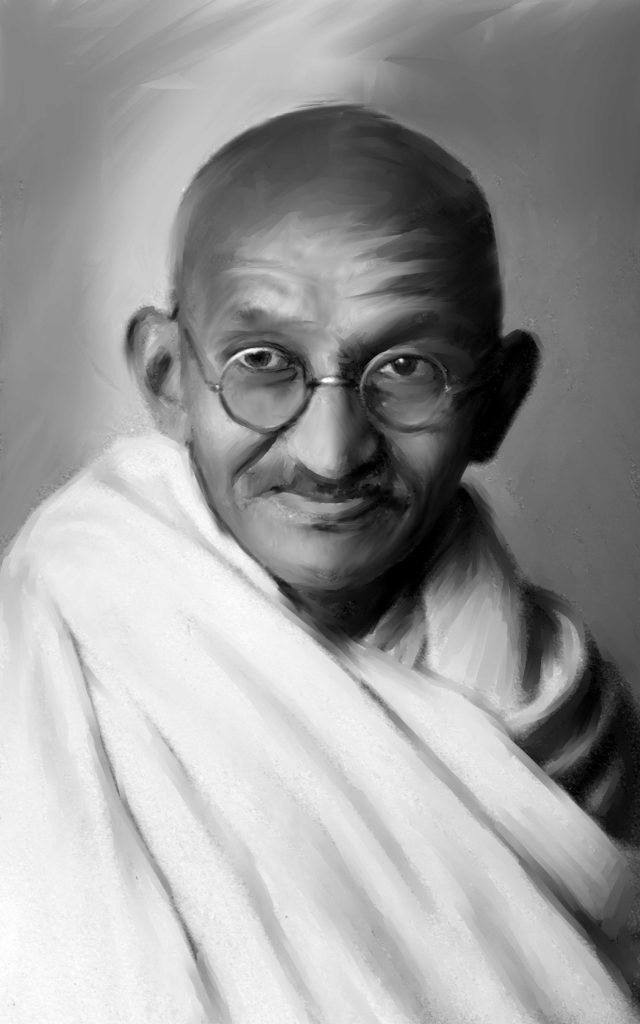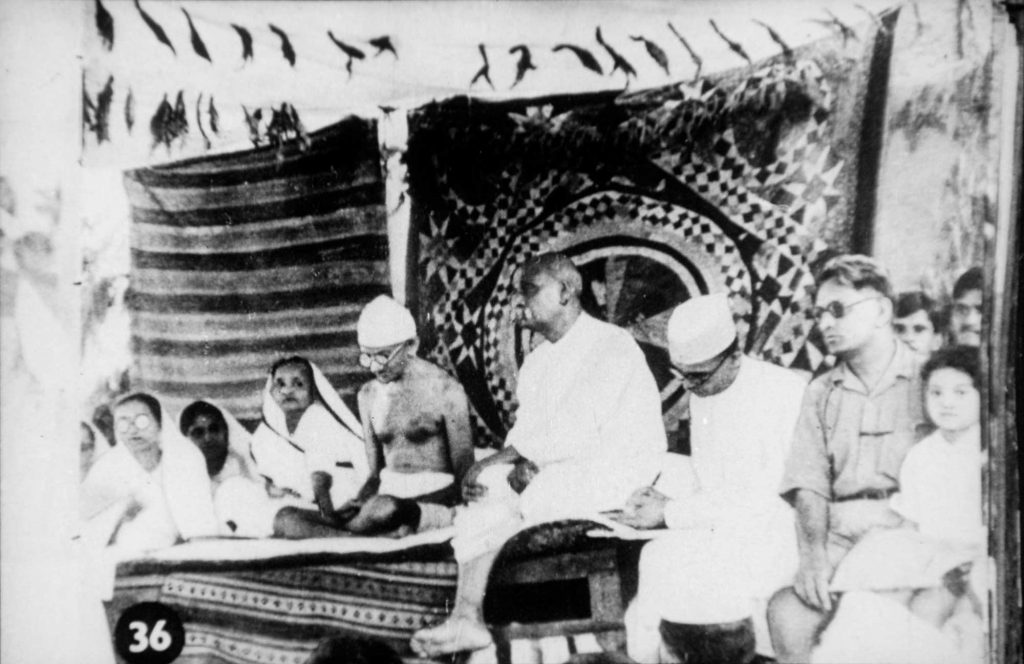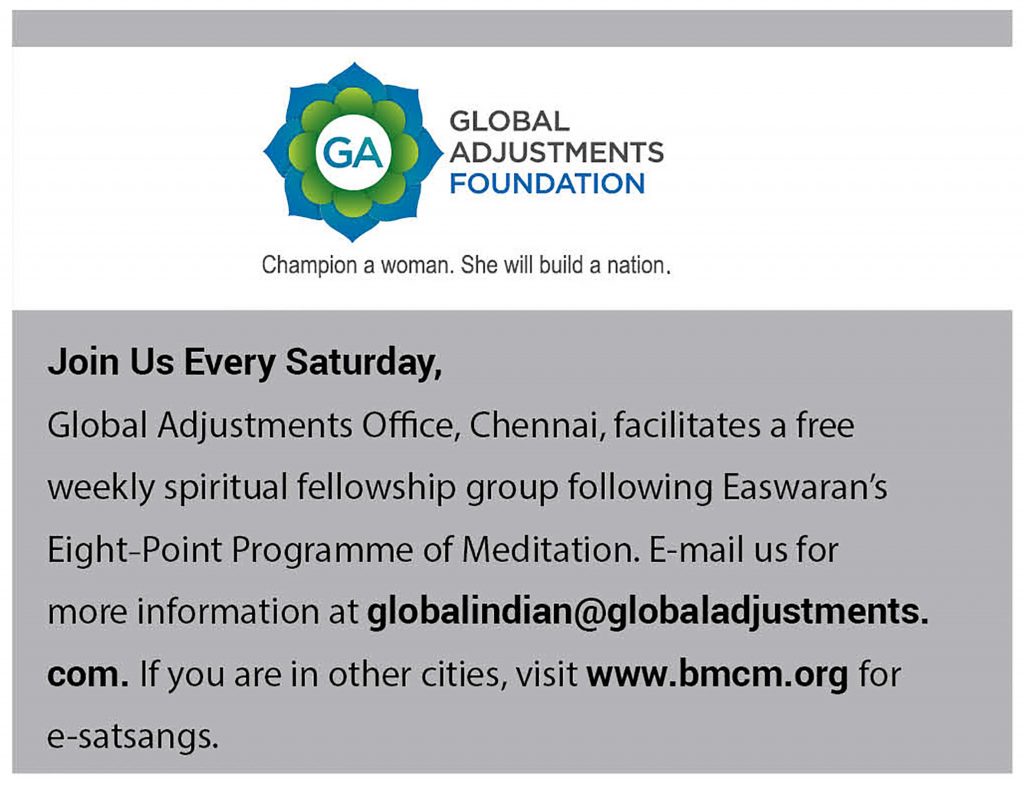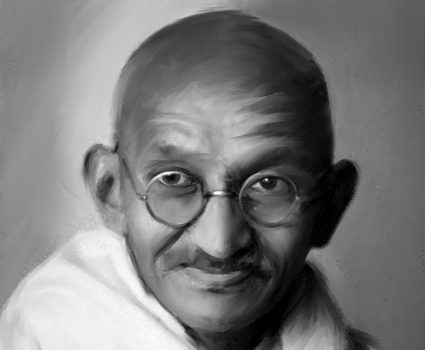Eknath Easwaran shares his thoughts on learning about non-violence through Mahatma Gandhi
 Non-violence, Gandhi states, ‘is the final flower of Truth’. Because love draws a deeper response out of everybody, love is not just the most idealistic basis for action but also the most practical. Every person – every creature, I would say – has an innate response to loving action. ‘Love is a rare herb that makes a friend even of a sworn enemy,’ Gandhi says. It is a revelation that he proved in the crucible of his own life over and over. Attacked so many times, vilified, thrown into prison again and again, betrayed, his life threatened and eventually even taken – Gandhi bore all these without resentment, without once stooping to retaliation. It is not that injustice did not move Gandhi to anger; not at all. But instead of exploding in anger, he had learned to sink into the very depths of consciousness in meditation, where we are one and resentment is impossible.
Non-violence, Gandhi states, ‘is the final flower of Truth’. Because love draws a deeper response out of everybody, love is not just the most idealistic basis for action but also the most practical. Every person – every creature, I would say – has an innate response to loving action. ‘Love is a rare herb that makes a friend even of a sworn enemy,’ Gandhi says. It is a revelation that he proved in the crucible of his own life over and over. Attacked so many times, vilified, thrown into prison again and again, betrayed, his life threatened and eventually even taken – Gandhi bore all these without resentment, without once stooping to retaliation. It is not that injustice did not move Gandhi to anger; not at all. But instead of exploding in anger, he had learned to sink into the very depths of consciousness in meditation, where we are one and resentment is impossible.
Conserving creative power
In this supreme descent every vital organ exults; the whole nervous system is renewed. These are not miracles of mystical awareness; they are miracles of health, which I would say everyone can learn. It is because he had learned the supreme miracle of transforming anger that this little man was able to work for others fifteen hours every day without ever getting tired or tense, never unkind, never unloving, from his early years well into his seventies. Conversely, even when anger is warranted, every explosion of anger is at the expense of your own vital organs. A flood tide of energy is wasted. This is the lesson that Gandhi learned early on and expressed in that famous statement: ‘I have learnt through bitter experience the one supreme lesson to conserve my anger, and as heat conserved is transmuted into energy, even so our anger controlled can be transmuted into a power that can move the world.’ When Gandhi talks about transmuting energy and power that can move the world, it is not mere simile. He means just what he says. The innumerable occasions we have every day to get angry, to say and do unkind things, are opportunities for conserving a tremendous and potentially creative power.
A cosmic force
In mystical language, a river of divine love is flowing in the depths of every one of us. When you and I return kindness for unkindness, that cosmic river carries our act of love into the depths of the unkind person’s consciousness. Only a fraction of this river’s effect may be visible, yet it goes on — silently, and over a long period. When Gandhi insists that only one man or woman, acting constantly out of such love, can change the course of the whole world, he is talking about the power of this cosmic force. This is what he named satyagraha, the power of love in action.
When we return kindness for unkindness, we are stirring the unkind person’s consciousness. When we do good to those who would harm us, as Jesus pleads with us to do, not only are we protecting our own mind from anger, we are educating the perpetrators of harm too – in a manner of which they may not even be aware. This is the basis of Gandhi’s long-drawn-out campaign to get British rulers to leave India: a sincere appeal to their sense of decency, ‘until they tire of exploiting us.’ This grand faith in the nobility of human nature – which he demonstrated tirelessly, day in and day out, over a period of some fifty years – is what distinguishes Gandhi from any other world leader I know.
 This article was published in The Blue Mountain Journal. This can be accessed at https://www.bmcm.org/inspiration/journals/
This article was published in The Blue Mountain Journal. This can be accessed at https://www.bmcm.org/inspiration/journals/

